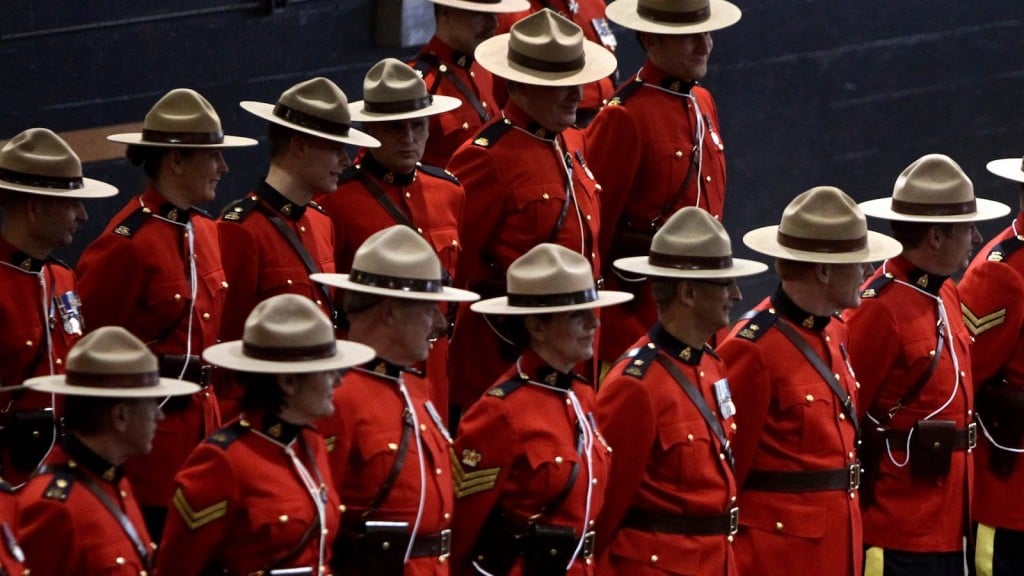Secrecy surrounding RCMP harassment case deepens
Ontario justice rules she lacks discretion to make mystery evidence public
Four-year-old Jack Robertson wears the Red Serge as he stands with RCMP officers during an RCMP change of command ceremony in Vancouver, B.C., on Friday February 11, 2011. Command of the RCMP’s “E” Division was transferred to Assistant Commissioner Peter Hourihan from Deputy Commissioner Gary Bass who has assumed the role of Deputy Commissioner West, overseeing RCMP operations in western Canada. THE CANADIAN PRESS/Darryl Dyck
Share

The shroud of secrecy on court documents said to involve the conduct of RCMP officers, as well as the private life of Prime Minister Stephen Harper’s family, must stay in place, an Ontario judge has ruled.
Justice Mary Vallee of the Superior Court said she lacks the discretion to lift the seal on potentially explosive information submitted in an RCMP workplace harassment case, adding that she cannot even provide reasons for the extreme secrecy.
“All of the information in those materials and the order relates to a subject matter which must be protected from disclosure,” Vallee wrote in a decision issued Thursday. “Because the subject matter must be protected, I am not at liberty to describe the nature of the subject matter or why it must be protected.”
Vallee brought down her ruling after Maclean’s, the CBC, Postmedia and the Toronto Star challenged her sealing order on the information two weeks ago on the grounds that it infringes on the open-court principle and the constitutional right to free expression.
She had issued the order last December during the civil trial of Sgt. Peter Merrifield, an RCMP officer who has sued the force alleging harassment, misconduct and coverups on the part of his superiors. Vallee’s order protects, among other things, affidavits and testimony submitted by a witness who had served as one of Merrifield’s former confidential sources. The witness was scheduled to testify last winter until lawyers representing the RCMP raised questions of admissibility.
Federal lawyers tried to assert special privilege that allows them to exclude confidential informants from taking the stand. But sources have told Maclean’s that Vallee has allowed Witness X to testify in another decision that remains under wraps.
Brian Rogers, a lawyer representing the media, described the court-ordered secrecy surrounding the case as “extraordinary,” noting that the wording of Vallee’s order itself remains sealed, leaving members of the media uncertain as to what they can report. On April 17, Rogers argued that the court must release as much of the information as possible without disclosing the witnesses’ identity. Merrifield’s suit, he added, had raised major concerns about the RCMP, its management and the conduct of its officers—all matters, he said, of pressing public interest.
Justice Vallee agreed in her decision Thursday, but said she simply couldn’t fulfill the media’s request, or even explain why. She did, however, note that some of the materials filed last December “related to information which, if released, could create safety and security issues.” Federal lawyers have served notice that, if driven to, they were prepared to invoke Section 37 of the Canada Evidence Act—a law Ottawa has used in terrorism cases to prevent the disclosure of information that could compromise public safety or security.
The relevance of that measure to this case is unclear, though sources say the contents of the affidavits touch on everything from the RCMP’s handling of its investigative sources to information about the Harper family’s private life—information that appears to have originated from within the Prime Minister’s protective RCMP detail.
Mark Stevenson, the editor-in-chief of Maclean’s, said he was disappointed that the court “sees fit to conduct justice behind closed doors,” adding: “We’re attempting to cover a story of considerable public interest, which raises issues of accountability within major public institutions including the RCMP. It is important not just that justice be done in this case, but that it is seen to be done.”